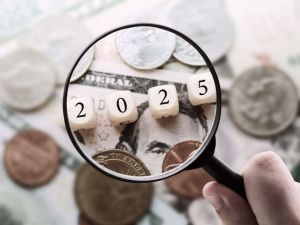As a first-time buyer, you might be wondering how much money do you need for a house deposit. You’ll find the answer in this article, plus some helpful suggestions on the best ways to save what you need.
Buying your first property has always been difficult for most ordinary people. It seems to get tougher with each passing generation. It’s not just the fact of affording the mortgage repayment. First, you have to ask yourself how much deposit do I need to buy a house and what is the best way to accumulate it.
| 🫰 How much deposit do I need to buy a house? | Generally, at least 5% |
| 🤔️ Is it possible to get a mortgage with a 0% deposit? | Yes, they are out there, such as a 100% LTV mortgage |
| ℹ️ Is there help for first-time buyers in the UK? | Yes, check the government mortgage schemes |
| 🏠 How to save for a deposit on a house? | Budget, reduce monthly expenses, invest, and use Lifetime ISA |
Of course, for some, the amount of the deposit needed is more than they can possibly save, so instead of buying a property, they opt to rent. There are pros and cons regarding whether to rent or purchase, which you can review by checking out this renting vs buying article, which looks at advantages and disadvantages.
How much deposit do you need to buy a property in today’s market?
How much deposit do you need for a mortgage in today’s financial climate? The answer is 5% of the property’s purchase price, leaving you to take out a 95% mortgage. So, as an example, if you were to buy a house for £300,000, a mortgage deposit of 5% would be £15,000, leaving you with a 95% mortgage of £285,000.
If you elected a 90% mortgage, you would need a 10% deposit of £30,000, leaving you with a mortgage of £270,000. However, if you can save enough for a 15% deposit, you would have to save £45,000, leaving you with an 85% mortgage of £255,000.
The more deposit you put down, the smaller the mortgage you will have to take. Staying with the same example of a purchase price of £300,000, a 20% deposit would amount to £60,000, leaving you only £240,000 on the mortgage.
Types of mortgage open to first-time buyers
A first-time buyer can be classified as a single person or a couple buying their first residential property. If you previously owned or co-owned property in the UK, you would unlikely qualify for first-time buyer status.
If you qualify as a first-time buyer, various mortgage options are open to you, one of the newest being the First Homes Scheme. You can find out more about this on the Gov.UK website.
The UK government also has a new 95% mortgage scheme, whereby they offer a guarantee to the mortgage lender on a property purchase of up to £600,000. How much deposit do first-time buyers get using these 95 mortgages for a property purchase of up to £600,000? – 5%, or £30,000. Interestingly, this scheme is also available for current homeowners and first-time buyers.
Types of mortgages open to all buyers
Many different types of mortgages are available if you’re looking to buy a home. If you are having trouble getting the minimum deposit together, you can even get 100% mortgages, although these are only available as guarantor mortgages.
The more conventional mortgage options available include:
- Discounted variable rate mortgage – like a tracker mortgage but tracks your lender’s SVR (standard variable rate) at a discounted rate of interest.
- Fixed-rate mortgage– whereby the interest rate remains constant for a set period of time.
- Interest-only mortgage – your repayments only cover the interest, not the sum borrowed, which has to be repaid by the end of the mortgage term.
- Offset mortgage – a mortgage that allows you to use your savings to make payments. Useful when the mortgage interest is higher than your savings account interest.
- Standard variable rate mortgage – follows the ups and downs of the lender’s interest rate.
- Tracker mortgage – the interest rate follows the BoE’s base rate.
How much deposit is needed to buy a house remains the same (5%,10%, 15%, etc.) regardless of which option you take, which poses the question – what’s the best way to save money for a house deposit?
Ideas regarding how to save money for a house
Having set your sights on what sort of deposit you are willing to lay down, you need to consider how to save money for a house deposit.
Create a budget and stick to it
Just saving whatever money is left over at the end of the month is hardly likely to cut it, especially if you treat yourself from time to time. So instead, make a firm expenditure plan (build a little wiggle room for unforeseen problems), and then stick to it.
Take stock of your rental situation
Suppose you already live in rented accommodation and don’t want to relinquish your freedom. In that case, you can think about moving to a cheaper area providing your new rent isn’t entirely eaten up by commuting costs.
If you are prepared to sacrifice some freedom, you might want to think about taking in a lodger or, in the worst-case scenario, moving back to live with your parents.
If you’re willing to give up some of your “at-home” time, you might consider taking on an extra job to increase your income.
Saving a deposit through investing
Whatever the answer to how much deposit do you need to buy a house, once you’ve created a budget, you need an effective way of storing the money you are setting aside. An ordinary savings account may not be the best choice as it won’t offer the best interest rate.
General investment accounts
According to Which?, the best you are likely to get on average is around 3.6%. But with inflation hovering around the double-figure mark, your saving will lose value in real terms. So you could do better by investing, and Many wannabe homeowners decide to open a general investment account.
The great thing with general investment accounts is that you can invest or withdraw any amount of money at any time. You also don’t have to worry about managing your investment; your account will be managed and rebalanced by professionals.
Opening an ISA
After considering how much deposit is needed for a mortgage, another prevalent choice for people is to open an ISA. A Cash ISA offers a similar interest rate to ordinary savings accounts, so you might like to check a Lifetime or Stocks and Shares ISA.
Some people are attracted by Lifetime ISAs because for every £4 you invest, the government will give you £1. The problem is that you can only invest a maximum of £4,000 per annum. Other downsides include only being able to contribute between the ages of 18 and 50, and you must be a first-time buyer.
A Stock and Share ISA doesn’t enjoy the benefit of government money. Still, you can save up to £20,000 per annum, there are no age restrictions (other than a minimum age of 18), and this type of ISA is available to first-time or second-home buyers.
Other options for consideration
Before we close this piece on how much deposit do I need to buy a house, there are two more things we should touch on – whether go down the buy-to-let route or invest in a mortgage or as a possible pension option.
Some people consider buying a home to let and using it as a pension. While it can provide a regular income, it also comes with management responsibilities, the issue of capital gains when you sell the property and other problems you can read about when you click on this buy to let vs personal pension article.
How much deposit is needed for a buy-to-let mortgage? Usually, a minimum of between 20% and 25%.
Investing in a mortgage might seem like a good idea. But if you use any unallocated money to pay off your mortgage earlier, you need to be aware of the problem of liquidity plus other issues. You can read about it in this invest in a mortgage article.
FAQ
What is a mortgage?
A mortgage is a type of secured loan an individual gets from the bank to purchase a house or property. It is a legal contract between a potential homeowner and a bank (lender) on which loan amount, interest rate, repayment term and other terms are agreed upon by both parties before the loan is made. However, if you default on your payments, the bank can take possession of your house and may sell your property at auction.
What is a house deposit?
A mortgage deposit is the sum of money you put down to purchase your home or property. The deposit can be paid in cash or by using a bank loan, usually 5% of the purchase price. The amount depends on what type of loan you take out and the lender’s requirements.
How much should you put down on a house?
The amount of money you put down as a deposit on a house is up to you. For most people, how much they want to put down on a mortgage largely depends upon their financial situation and how much money they can afford. This will help determine the type of loan they qualify for.





